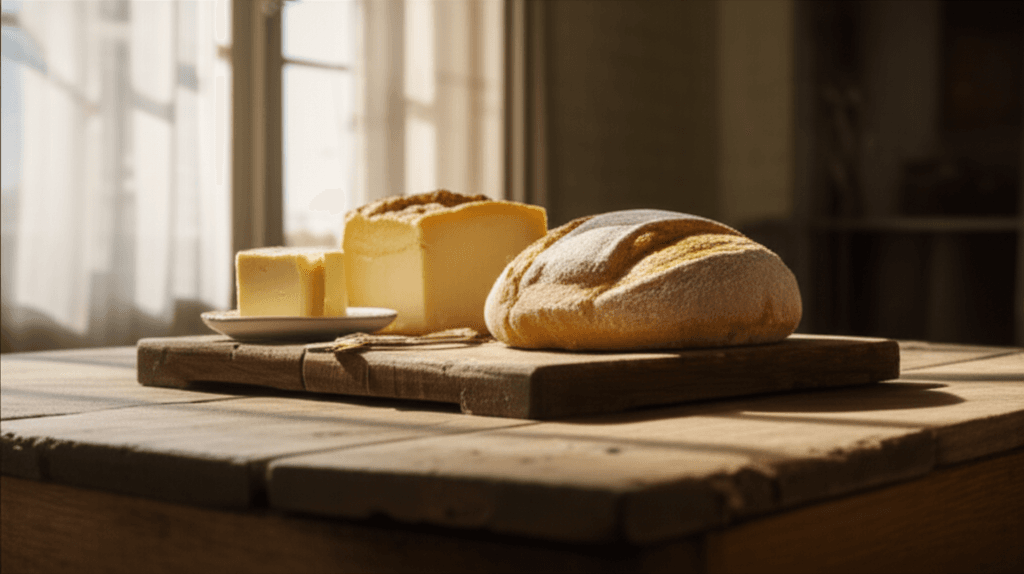The image of French people enjoying rich cheeses, flaky pastries, and ample wine while maintaining a relatively slim physique has long puzzled the world, giving rise to the term “French Paradox.” While other cultures grapple with rising obesity rates, France, despite its culinary indulgence, boasts significantly lower statistics. According to a fitness coach, the secret lies not in deprivation, but in a deeply ingrained cultural approach to food and lifestyle.
This intriguing phenomenon can be attributed to nine key habits and societal norms that prioritize balance, quality, and mindful enjoyment over calorie counting and restrictive dieting.

The Pillars of French Eating Culture
Unlike many Western nations where eating can be rushed and convenience-driven, the French approach to food is deliberate and deeply rooted in tradition and pleasure.
1. Cultural Portion Control
“Small is normal” in France, according to fitness coach Dan Go. This isn’t just a preference; it’s a cultural standard. Coffee cups are smaller, sandwiches are not “footlongs,” and meals are generally not supersized. Studies have shown that portions in French restaurants and even supermarket items like yogurt are substantially smaller than their American counterparts, leading to fewer calories consumed without a feeling of deprivation. This ingrained moderation is a fundamental aspect of their diet, from desserts sold in tiny containers to restaurant meals offering built-in portion control.
2. Structured Meal Times
The French adhere to a strict schedule of three proper meals a day: breakfast, lunch, and dinner. Snacking between these meals is rare and often discouraged, particularly for adults. This structured eating rhythm helps stabilize appetite and prevents the constant grazing common in other cultures. For children, a small afternoon snack (“le goûter”) is common, usually consisting of healthy options like fruit or yogurt.
3. Savoring Meals and Eating Slowly
For the French, eating is a leisurely, multi-sensory experience, often enjoyed at a table with family or friends. They don’t rush through meals or eat while driving or at their desks. This practice of eating slowly allows the brain more time to register fullness, preventing overeating. Engaging in conversation during meals also keeps the mouth busy talking rather than chewing, contributing to a slower pace of consumption.
4. Quality Over Quantity
French food culture emphasizes taste, freshness, and high-quality ingredients. Rather than focusing on low-fat or diet foods, they prioritize real, unprocessed ingredients. This means embracing full-fat dairy, butter, and rich sauces, but in small, satisfying portions. The belief is that richer, more satisfying food, even in smaller amounts, can fill you up quicker and leave you less likely to snack.
5. No Food Restrictions
Unlike many diets that label certain foods as “bad,” French culture embraces a wide variety of foods, including bread, butter, wine, and pastries, without demonizing them. This approach fosters a balanced relationship with food, removing the guilt often associated with indulgence. While rich items are enjoyed, they are often consumed as delicacies, in small amounts, and typically after a meal or on special occasions, rather than daily staples.
6. Minimal Liquid Calories
The French primarily drink water with their meals, and wine is consumed in moderation as an accent to food, not as a thirst quencher. Sugary drinks like sodas are typically reserved for parties or occasional “apéritifs.” This conscious choice to avoid excessive liquid calories from sweetened beverages significantly contributes to lower overall calorie intake.
7. Built-in Daily Movement
Physical activity is an inherent part of daily French life, rather than a separate, planned “workout.” Many French people walk or bike to work, to markets, and for errands. Cities are often pedestrian-friendly, making walking a necessity and a natural form of exercise. This consistent, built-in daily movement helps burn calories without dedicated gym time, meeting or even exceeding recommended daily activity levels.
8. Societal Discouragement of Overeating
In France, overeating is often subtly frowned upon. Cultural norms subtly encourage moderation, slimness, and balance. There’s a collective understanding that food is to be enjoyed mindfully, not devoured until stuffed. This social pressure can shape individual habits, nudging behavior in a healthier direction without explicit rules.
9. A Holistic Relationship with Food and Life
Ultimately, the “French Paradox” isn’t solely about what the French eat, but how they live and their profound relationship with food. They count conversations, not calories, and embrace “intermittent living” rather than intermittent fasting. Meals are considered events, every bite intentional, and every glass of wine has a purpose. This holistic mindset, combined with fresh, real ingredients and regular physical activity, creates a sustainable lifestyle that allows for enjoyment without excessive weight gain.
By adopting some of these culturally ingrained habits—prioritizing quality over quantity, eating slowly, limiting snacks, and integrating daily movement—individuals worldwide might find a more balanced and enjoyable path to maintaining a healthy weight.







